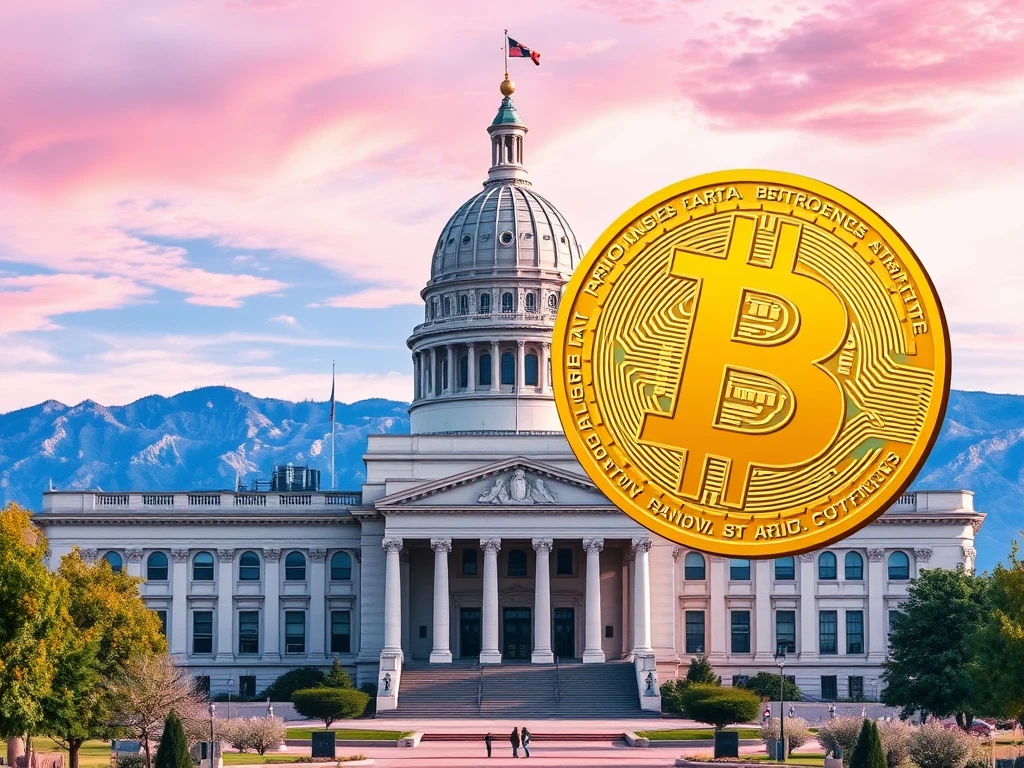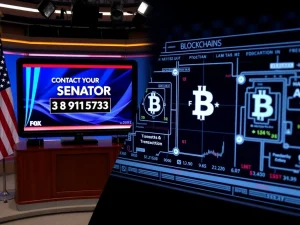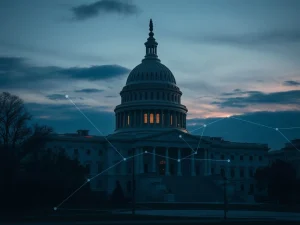Outrage: Arizona Governor Vetoes Bitcoin Bill, Blasted for ‘Ignorance’

The recent veto of the Arizona Bitcoin bill by Governor Katie Hobbs has ignited significant debate within the cryptocurrency community and political circles. This decision, preventing Arizona from holding Bitcoin as part of its official reserves, has drawn sharp criticism from prominent Bitcoin advocates and state officials.
Why the Arizona Bitcoin Bill Mattered
The proposed legislation, known as the Arizona Strategic Bitcoin Reserve Act, aimed to allow the state to invest seized funds into Bitcoin (BTC) and establish a dedicated reserve. State officials would have managed this reserve, positioning Arizona to potentially become the first U.S. state with an official state Bitcoin strategy. The bill was championed by State Senator Wendy Rogers and State Representative Jeff Weninger, who argued for the potential benefits of including the digital asset in the state’s financial holdings.
Governor Katie Hobbs’ Reasoning Behind the Veto
On May 2, Governor Hobbs officially vetoed Senate Bill 1025. Her stated reason centered on the perceived stability and performance of the existing Arizona State Retirement System. Hobbs commented, “Today, I vetoed Senate Bill 1025. The Arizona State Retirement System is one of the strongest in the nation because it makes sound and informed investments.” This suggests the governor viewed investing public funds in Bitcoin as speculative or inconsistent with the state’s established investment practices.
Bitcoiners React Strongly to Arizona Veto
The governor’s decision quickly drew fire from the Bitcoin community. Jameson Lopp, co-founder of Casa, commented on X, predicting the decision would “age poorly.” Bitcoin entrepreneur Anthony Pompliano criticized the move, highlighting the perceived lack of understanding regarding Bitcoin’s potential. Pompliano stated, “Imagine the ignorance of a politician to believe they can make investment decisions.” He argued that if the state’s traditional investments cannot outperform Bitcoin, the state should consider holding it. Crypto lawyer Andrew Gordon echoed this sentiment, emphasizing the need for elected officials who grasp the future potential of Bitcoin and cryptocurrency.
State Senator Wendy Rogers, a co-sponsor of the bill, also voiced her disappointment. She countered the governor’s stance, stating, “Politicians don’t understand that Bitcoin doesn’t need Arizona. Arizona needs Bitcoin.” Rogers pointed out the apparent inconsistency, noting that Arizona’s state retirement system already holds stock in MicroStrategy (MSTR), a company with significant Bitcoin holdings, which she described as essentially a “leveraged Bitcoin ETF.” Rogers confirmed her intention to refile the bill in a future session.
Conversely, well-known crypto skeptic Peter Schiff supported Governor Hobbs’ decision. Schiff argued against the use of public funds for speculating in cryptocurrencies, aligning with the governor’s cautious approach to managing Bitcoin reserves.
Setback for State Bitcoin Adoption
The Arizona veto represents a setback for proponents hoping to see states adopt Bitcoin as a reserve asset. Arizona joins a list of other U.S. states where similar legislative efforts have stalled or been withdrawn recently, including Oklahoma, Montana, South Dakota, and Wyoming. Despite these legislative hurdles, some institutions continue to increase investments in Bitcoin mining and related ventures, particularly within the U.S., suggesting ongoing interest in the asset class among different sectors.
Conclusion: The Ongoing Debate Over State Bitcoin Holdings
The clash over the Arizona Bitcoin bill highlights the broader national debate regarding cryptocurrency adoption at the state level. While proponents see Bitcoin as a necessary future asset for state reserves and a hedge against inflation, opponents view it as too volatile for public funds. The strong reactions to Governor Hobbs’ veto underscore the passion on both sides and suggest that the push for state-level Bitcoin integration is likely to continue, despite recent legislative setbacks.








